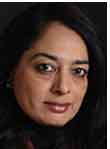10 Sep 2010, NewAgeIslam.Com
Eid: A day to celebrate
 Eid Mubarak! Eid-ul-Fitr is celebrated on the first day of the 10th Islamic month Shaw’waal, which marks the completion of Ramzan. The festival begins with the first sight of the new moon. For Muslims it is a joyous day of thanksgiving to God; for guiding them to follow His injunctions on fasting and softening their hearts with His remembrance during the sacred month.
Eid Mubarak! Eid-ul-Fitr is celebrated on the first day of the 10th Islamic month Shaw’waal, which marks the completion of Ramzan. The festival begins with the first sight of the new moon. For Muslims it is a joyous day of thanksgiving to God; for guiding them to follow His injunctions on fasting and softening their hearts with His remembrance during the sacred month.
Muslim communities all over the world begin the day by attending congregational prayers that are followed by a khutbah, sermon. It is then customary to embrace the persons sitting on either side, whilst greeting them. After the prayers, people visit their relatives, friends and acquaintances. -- Sadia Dehlvi
By Sadia Dehlvi
Sep 10th, 2010
Eid Mubarak! Eid-ul-Fitr is celebrated on the first day of the 10th Islamic month Shaw’waal, which marks the completion of Ramzan. The festival begins with the first sight of the new moon. For Muslims it is a joyous day of thanksgiving to God; for guiding them to follow His injunctions on fasting and softening their hearts with His remembrance during the sacred month.
Muslim communities all over the world begin the day by attending congregational prayers that are followed by a khutbah, sermon. It is then customary to embrace the persons sitting on either side, whilst greeting them. After the prayers, people visit their relatives, friends and acquaintances.
Prior to the prayers, Muslims are obliged to pay the Zakat ul-Fitr, a small amount of money to a poor person for every member of the household, including the staff and houseguests. According to tradition, Muslims don’t get rewards for fasting till they have given this charity. Zakat ul-Fitr is usually three kilograms of the main item of grain consumed by a person during the year — rice, wheat, barley, etc. People generally pay the equivalent cash. Zakat ul-Fitr must be paid in the town one resides in. It is a way of sharing happiness with the poor, enabling them to enjoy the festival.
The day of Eid is a day of forgiveness, a day of repentance and a day of allegiance to continue what one has done in Ramzan. Other days must also include fasting, prayer and charitable deeds. One must forgive those who have harmed or hurt us, and those who have transgressed against us for Allah clearly says that He forgives those who forgive others.
The Quran says that fasting is necessary to gain awareness of Allah and protect ourselves from harm. Fasting for six continuous days, beginning on the day after Eid, is highly recommended in Islamic traditions. Prophet Mohammad said, “Whoever fasts the month of Ramzan then following it by fasting six days during the month of Shaw’waal, will be rewarded as if he has fasted the entire year”.
After having renewed our relationship with Allah during Ramzan, the challenge lies in not forgetting the lessons. Ramzan goes away, but we must remember that the Lord of Ramzan is the Lord of every month and every day for Allah says never to curse time, for time is His. It is He who is the Lord of the Heavens and the Earth.
Those who have fasted and tasted hunger should not forget the experience of those who go hungry for lack of provisions. We live on a planet where millions live in slums, in poverty. Recognising the needs of poor people is one of the most important lessons of Ramzan. God warns us not to neglect the needs of these people for if Allah has tried them with poverty, He is trying us with wealth.
Another lesson learnt from Ramzan is to practise patience. This is something that should not be forgotten after EId celebrations. Allah says that the one who purifies his/her soul is the one who is successful. After a month of purification, we should continue resisting temptations that corrupt the soul.
Most Muslims read the whole Quran at least once in the Ramzan month. The primary lesson of the book is the law of spiritual cause and effect. People can get around the legalities of crime in this world, but there is no escaping the effect it has on the soul. This is a basic doctrine of every religion.
On this Eid, may Allah shower His blessings on all of us, grant us with guidance and peace; may He be pleased with us and free us from fear, for whomsoever trusts the Lord, He suffices him. Once again, Eid Mubarak!
— Sadia Dehlvi is a Delhi-based writer and author of Sufism: The Heart of Islam. She can be contacted at sadiafeedback@gmail.com
Source: The Asian Age
URL: http://www.newageislam.com/NewAgeIslamIslamSpiritualMeditations_1.aspx?ArticleID=3419




 Moderate Islamist here
Moderate Islamist here


0 comments:
Post a Comment